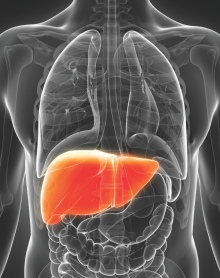Inventor's Corner: Simon Taylor-Robinson and Nimzing Ladep

Nimzing Ladep and Simon Taylor-Robinson
Professor Simon Taylor-Robinson and Dr Nimzing Ladep (both Medicine) are part of a small team developing a new device to detect liver cancer.
What do you consider to be the biggest challenge with liver cancer?
STR : In parts of the developing world, liver cancer, linked to Hepatitis B infection, kills nearly four times as many people as HIV/AIDS. This is mostly because the cancer is hard to detect. When it is detected, it is already advanced and therefore usually untreatable.
How are you tackling these issues?
 STR : We set off to develop a urinary dipstick capable of not only identifying, but also tracking liver disease and cancer progression. After our initial studies in Nigeria and Egypt where we identified some promising biomarkers for the disease, we secured a substantial EU fund to test, track, and in some cases, treat 13,000 people across Gambia, Senegal, and Nigeria.
STR : We set off to develop a urinary dipstick capable of not only identifying, but also tracking liver disease and cancer progression. After our initial studies in Nigeria and Egypt where we identified some promising biomarkers for the disease, we secured a substantial EU fund to test, track, and in some cases, treat 13,000 people across Gambia, Senegal, and Nigeria.
NL : With the larger study we wanted to expand on the original approach and refine the choice of biomarkers carried forward. Not only were there more data, but we applied a new analysis method, to verify and study the molecules in greater detail. We now have a panel of three biomarkers. Individually, they wouldn’t work, but together they perform much better than current tests.
How would your dipstick method compare with existing approaches?
NL: The technology required to detect liver cancer, namely ultrasound and blood analysis, is not practical or possible in most rural African settings. Even if they were affordable, they are not very reliable in inexperienced hands. We want to create something cheaper, better, and easier to use. What is truly versatile about our project is our approach: instead of just diseased and healthy groups, we focused on the high risk and diseased populations. This way, we were able to detect patterns within liver cancer and identify a core set of molecules that truly represent its biochemistry.
For help in finding a commercial application for your research visit: http://www.imperialinnovations.co.uk/technology-transfer/
Article text (excluding photos or graphics) © Imperial College London.
Photos and graphics subject to third party copyright used with permission or © Imperial College London.
Reporter
David Barreto Ian
Imperial Innovations